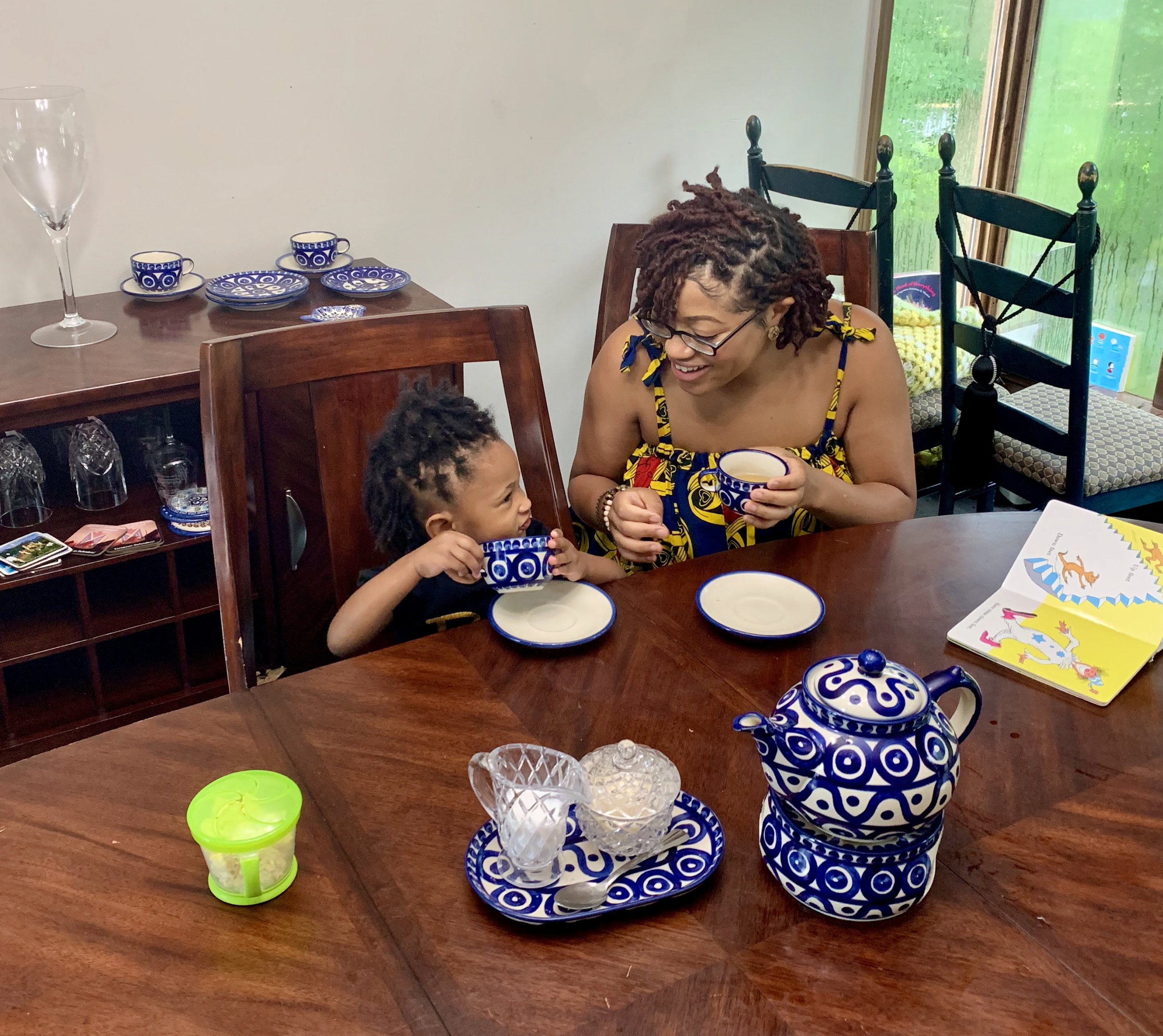
Why I Chose Positive Parenting
I specifically remember standing in a corner alone and miserable with urine stained drawers on my head, over my face because I had a potty training accident. I’m sure (I hope) it wasn’t that long, but to toddler me, it felt like an eternity. An eternity of being Pee Pee Headass for a mistake. Fear, Shame, Guilt, and Pain, that is what I think of when I think of any discipline in my childhood. I think of whippings, corners, yelling, tears, and overwhelming feelings of fear, shame and pain. So when my husband and I decided we wanted to have children, I knew I had to find something different for my household. I always knew I didn’t want to hit my children as discipline because I had way too many horrible memories of whippings. However, initially, I had it in my mind that I would use corrective training for my children like soldiers. You know, make them do squats, burpees, and 6 inches as punishment to bend them to my will and train them to be “good children” who listened and minded.

The idea that children have their own ideas, thoughts and wants is so outrageous to us. We talk about them and discipline them like they are pets. Pets that are an extension of us and therefore must be made to bend to our will so they don’t embarrass us. They aren’t given options or a voice in the solutions that make up their world. Parents don’t take the time to explain why something is needed. Children are people with consciousness, aware of self. Asking questions of the world and finding their place in it, and we continually give them no autonomy, no choice, just commands and demands. Then we yell and whip them for being frustrated or being combative.
I didn’t want any part in that and everything I read that was punishment based still supported that. Every option from timeouts and corners to corrective training still led to my children developing one or more of the 4 Rs of Punishment: resentment, revenge, rebellion, or retreat. So I started looking for parenting options without punishment. I wanted my children to feel better and do better. I know… I know. “Tash, how are you going to have any discipline in your house without punishment? Your children are going to be spoiled, entitled, and wild.” Not with Positive Discipline.
What is Positive Discipline?
It’s a model based on Alderian psychology. “The premise of this model is to help people find a sense of belonging and significance following FIVE CRITERIA:
- Helps children feel a sense of connection. (Belonging and significance)
- Is mutually respectful and encouraging. (Kind and firm at the same time.)
- Is effective long - term. (Considers what the child is thinking, feeling, learning, and deciding about himself and his world – and what to do in the future to survive or to thrive.)
- Teaches important social and life skills. (Respect, concern for others, problem solving, communication, and cooperation as well as the skills to contribute to the home, school or larger community.)
- Invites children to discover how capable they are. (Encourages the constructive use of personal power and autonomy.)”
Developed by Dr. Jane Nelsen, it is based on the work of Alfred Adler and Rudolf Dreikurs and designed to teach young people to become responsible, respectful and resourceful members of their communities. With Positive Discipline I am given tools and methods to lead and guide my children using kindness and firmness. Instead of punishment, I am given the option of natural consequences, logical consequences and focusing on solutions with my children. I want my children to feel love, respect and capability even when they look back on their discipline. And the research shows positive discipline will give me that.

This Post Has One Comment
Comments are closed.




Wow, this paragraph is nice, my sister is analyzing such things, thus I am going to let know
her.